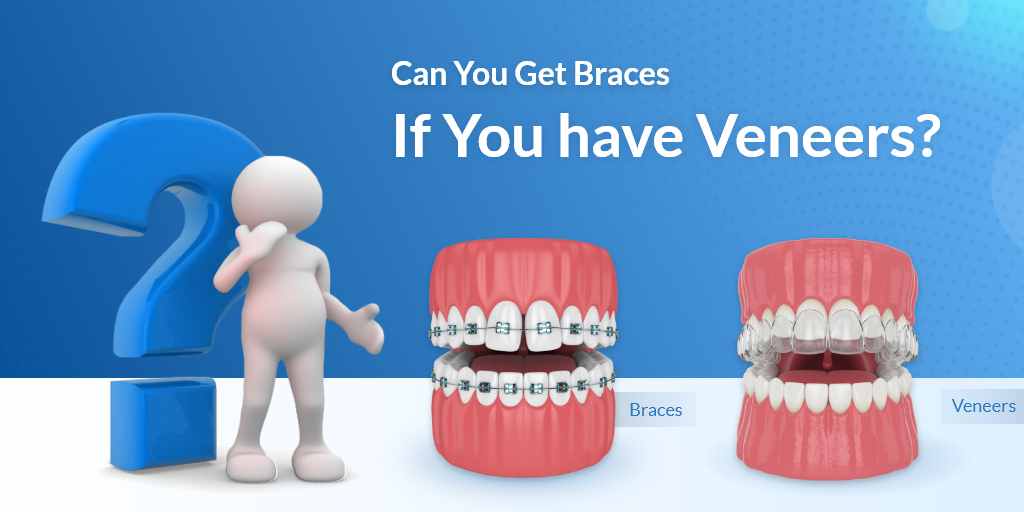People are constantly looking for ways to improve their smiles. They often question whether specific dental procedures are effective. Can you get braces with veneers? This article will explore the effects of combining these two treatments on dental health. We discuss the factors that determine the feasibility of this combination and offer alternative solutions for individuals in this situation.
Veneers: A Brief Understanding
To understand the effects of getting braces with veneers, it’s crucial to first know what veneers are. Veneers are thin porcelain or composite layers that are added to the front of your teeth. They can change the shape, color, size, or length of your teeth. Cosmetic dental treatments are popular for improving smiles and overall mouth appearance by correcting minor imperfections. Understanding the important characteristics of veneers is crucial for knowing how they can affect orthodontic treatment.
Braces and Veneers: Can They Coexist?
The short answer is, yes—technically, it is possible to get braces with veneers. The compatibility of these treatments depends on factors like an individual’s dental health, the type of braces used, and the condition and quality of the veneers. Taking a closer look at these factors can help people determine if this combination is a feasible choice for them.
- Shape and Durability of Existing Veneers: Existing veneers are important in deciding if braces are suitable. Metal braces, like traditional ones, need brackets attached to the front of teeth. This can be difficult if veneers have changed the shape of the tooth a lot. If veneers are in bad condition or low quality, braces can put too much pressure on them. This could cause cracks, chips, or even make them come off. In such cases, alternative orthodontic treatments might be a safer choice.
- Type of Orthodontic Treatment: The type of orthodontic treatment affects whether it can be combined with veneers. Traditional metal braces might not be the best choice for most veneers. In contrast, clear aligners like Invisalign are usually better suited for veneers. They don’t apply direct pressure to the veneers, which lowers the risk of damage. The patient’s dentist will evaluate their dental situation to decide if Invisalign is a good option.
- Evaluating Dental Health: An individual’s dental health determines if veneers and braces can be used together. Braces may not be recommended if a person’s dental health is poor. This includes gum disease, tooth decay, or weak teeth structure. It’s important to address these underlying problems before considering braces. Dentists may suggest replacing old veneers with new ones after orthodontic treatment, if needed. This requires a thorough dental health assessment.
- Timing Your Dental Treatments: When it comes to veneers, timing the treatments correctly is just as important as selecting the appropriate orthodontic treatment for ensuring success. Dentists might suggest waiting to put on veneers until after orthodontic treatment is finished. This can help maintain the integrity of both treatments and be more effective. Some veneer procedures, like minimal-preparation or no-preparation veneers, can be less invasive. This allows for a smoother combination of treatments.
- Personalized Dental Plans: It’s crucial to talk to an experienced dentist about your dental goals, needs, and concerns. Orthodontists and cosmetic dentists can create a personalized dental plan just for you. They consider your specific situation to make sure you get the best results. With your dental team, you can explore different orthodontic treatments, find the right timing for your procedures, and feel confident as you work towards achieving a healthy smile.
